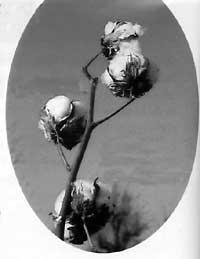Polyester in cotton and low cip
Cotton and mustard plants produce plastic thanks to the bacterium Alcaligenes eutrophus. The plant transforms this mixture into polyester energy. Therefore, when you want the polyester to be wanted, you should only pick up those white grains.

Biopol, a member of the multinational Monsanto, has been working in this company since 1988. This plastic is used in the manufacture of shampoo containers, but is biodegradable and of good quality but not profitable for its high manufacturing costs.
As a result, a team of biochemists and biologists from the Biopol house is working. The bacterium Alcaligenes eutrophus wants to know which gene activates the enzyme to convert the sugary mixture into plastic. Once found this gene, it will be introduced in the plant and he himself will produce his polyester without giving him sugar. As for the proponic acid that gives consistency to plastic, the researchers want the plant to generate it from the amino acids.
The results obtained in the laboratory are revealing. Cotton and mustard, naturally raised, contain 0.01% polyester of their weight and Monsanto gets 4% plastic with transgenic plants. The increase of the percentage to 20 would be profitable and could be marketed plants.





